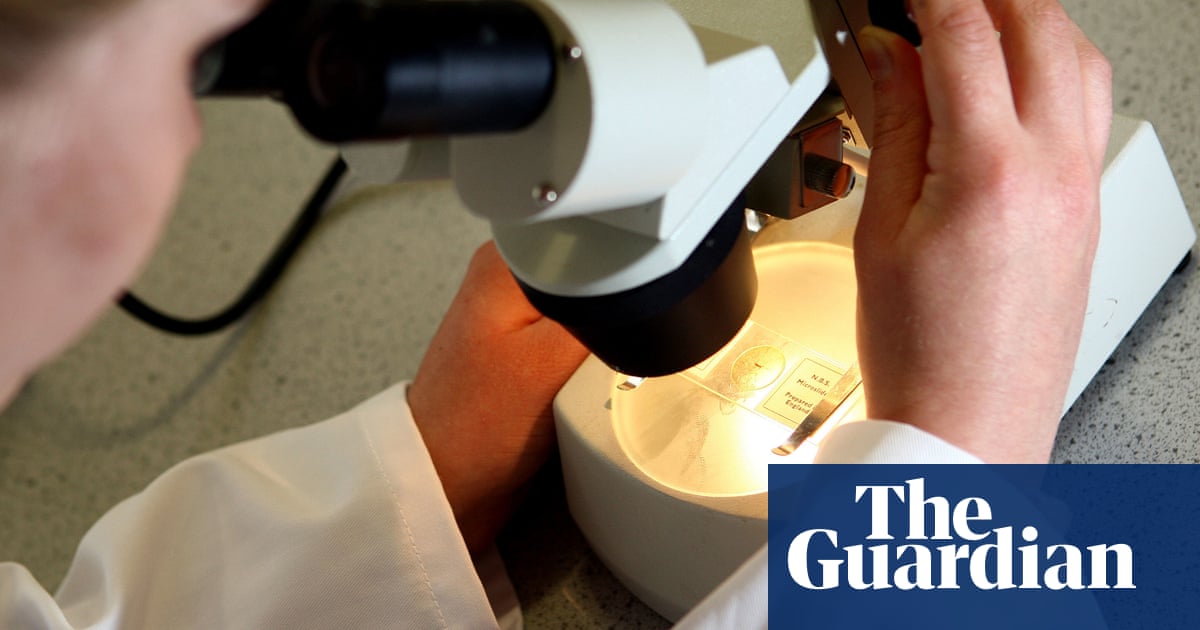Routinecervical screeningshould be offered to women aged 65 and over as they are still at heightened risk of cancer from human papillomavirus (HPV), according to research.
Despite it being a preventable disease, there were about 660,000 cases of cervical cancer and 350,000 deaths from it worldwide in 2022, according to theWorld Health Organization(WHO).
HPV is responsible forabout 95% of cervical cancer, which occurs when abnormal cells develop in the lining of the cervix and grow, eventually forming a tumour.
WHO’sglobal strategyon cervical cancer states that by 2030, all countries should vaccinate 90% of girls with the HPV vaccine by 15, screen 70% of women and treat 90% of those with cervical disease.Modellingsuggests this would prevent 62m deaths and a cumulative 74m new cases of cervical cancer by 2120.
Screening programmes vary from country to country, but most guidelines recommend stopping cervical screening after the age of 65 if previous test results have been normal.
Yet global cases of cervical cancer among people over 65 have been rising: in 2022, worldwide there were 157,182 new cases and 124,269 deaths from the disease among women aged 65 or older.
In the UK, while screening and vaccination rates are higher than many other countries,they have been fallingin recent years. Cervical cancer leads to approximately685 deaths a year in Englandalone.
Now a large-scale observational study published in Gynecology and Obstetrics Clinical Medicine has found that older women are more likely to have HPV infections and to have abnormal cells in test results than younger women.
Researchers in China analysed cervical cancer screening data for more than 2 million women between 2017 and 2023. Of the 2 million, 17,420 were aged 65 and above; the remainder were younger.
The study found greater prevalence of high-risk HPV infections and abnormal cells among women aged 65 and over than in younger women. Nearly 14% of those 65 and over tested positive for high-risk HPV infection types, compared with 8% of those who were younger.
Older women were also more likely to be infected with several different types of HPV and have abnormalities picked up on screening.
While acknowledging limitations to the study, the findings indicate that “women [aged 65 and above] are a high-risk group for cervical cancer incidence and mortality, necessitating urgent attention from countries worldwide”, the authors conclude.
“Most guidelines suggest stopping screening for those with adequate primary screening and no high-risk factors, particularly for women under 65,” they say. “However, the situation differs for those over 65, who may not have been vaccinated or thoroughly screened. With increasing life expectancy, the risk of cervical cancer in this demographic is significantly heightened.”
Responding to the findings, Athena Lamnisos, chief executive of the Eve Appeal cancer charity, said among people over 65, “there is a largely unvaccinated population who, if under-screened or if they have never attended screening, may well still be at high risk of cervical cancer”.
“We would look to the National Screening Committee to examine the findings and see if there would be benefits in reviewing screening age.”
Maxine Lenza, health information manager atCancerResearch UK, said: “Recent improvements to the test in the UK means it’s an extremely effective way of preventing cervical cancer and saving lives, so those over the age of 65 and up to date with their cervical screening will have a very low risk of developing the disease. However, women over 65 who have never had cervical screening can request a test with their GP practice.”
An NHS spokesperson said: “The NHS cervical screening programme in England follows expert recommendations on age and frequency of screening by the UK National Screening Committee, which are based on regular reviews of the best evidence globally.
“Women with an HPV-positive screening result at the age of 65 are invited for additional screening to monitor their ongoing risk and we would encourage all women to attend appointments when invited to ensure they have the best protection against cervical cancer.”
A Department ofHealthand Social Care spokesperson said: “The screening age brackets are based on robust scientific evidence and an expert recommendation from the UK National Screening Committee, however any women who are worried about their symptoms can speak to their GP who will decide the best course of action.
“It is vital that we increase the number of women accepting their invitation for cervical cancer screening within the existing age bracket. As part of our 10-year health plan, those who are eligible will be offered convenient human papillomavirus self-sampling kits – breaking down barriers to healthcare as we shift from treatment to prevention.”
